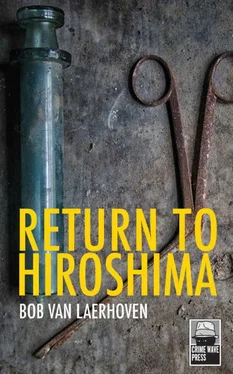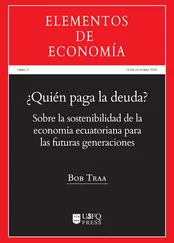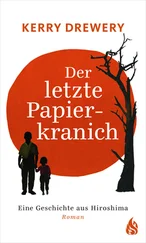Takeda fiddles with a toothpick in his mouth. He thinks about the past. He thinks about the present. He thinks about everything at once.
He focuses: the dead baby under the peace monument is still preying on his mind. Why?
Hiroshima – Mitsuko walking through the streets – Mitsuko and Yori – evening, March 12 th1995
I’m wandering through the streets of Hiroshima again like a headless chicken, having decided, when I awoke this morning, to stay at the hotel until I had a plan. As the evening approached, my restlessness made it impossible to wait any longer. The walls were closing in on me so I left the hotel. I’ve been walking around aimlessly for over an hour. I cross a main road and follow it to the river. Couples are sitting on benches. They start kissing when they think no one’s looking, and grope around in each other’s clothes. I look at the renowned silhouette of the Peace Memorial looming up against the setting sun, relic of an era my father always called “the great humiliation”. The words filled me with awe as well as a feeling of insecurity because of the theatrical grimness with which they were spoken, as if I sensed he was feeding his phenomenal pride with an ever-increasing hatred. I find an empty bench, sit and look out over the river. In my teens, I often fantasised about my mother. I pictured her launch herself like a seagull from the ramparts surrounding Hashima Island, invariably dressed in a gown that billowed around her like wings of gossamer as she fell. I tried to feel the blow that cracked open her body on the rocks; I watched her being seized and carried off by the sea. The last thing I’d see of her before her demise was a slender hand. The daydream always ended with the question: was my father to blame for her suicide? Was it even suicide? Why had he told me so bluntly that she had “leapt from the rocks, unable to accept her fate”? Should I make more of an effort to understand his abruptness because of this sad event? I had too little to go by; youthful fantasies were my only clues. Many times the hand I saw sticking out above the waves in a gesture of goodbye was my own. On such occasions, I’d see the daydream through the eyes of my father, a powerless god destined to grieve forever.
I’m startled by a voice behind me: “Holy oxygen you need, and fast… just what the doctor ordered, Missy, just admit it.”
I turn around. Behind me is a young woman around my own age. She has painted glittery wings around her eyes and her hair is brushed forward over her forehead. It has a metallic red sheen and ends in an untidy fringe just above the wings. She’s wearing a surgical mask and is pointing a spray can at my face. The can is covered with rice paper, the words “laughing gas” spelled out in stick-on kindergarten letters. Her peculiar dress reminds me of a Louis XV ball gown. She smiles at me, gesturing “money” with her thumb and index finger. She’s wearing gloves, bright red wool; must be very warm in this temperature. She points at my chuddar. “No matter what you believe in, everyone needs holy oxygen.” Why does she call her laughing gas holy oxygen? I assume she’s high, if her easy carefree movements are anything to go by. I don’t know much about “alternative youth culture”. In my view, it’s a bit pretentious. All that hyperkinetic effort to distinguish yourself from the rest of the crowd! I stand, hoping that my height will put her off, but the opposite happens: she laughs admiringly and steps closer as if we’re sisters sharing a secret.
“What an impressively tall girl you are! Well, do you want it or don’t you? Only 200 yen.” She points the spray can at me as if I have no choice. Confused, I grab a bundle of banknotes and peel one off. She puts her hand on my arm. I pull it away quickly and she steps back a pace, a little hesitant for the first time. “Open your mouth,” she says, pocketing the note. I obey reluctantly. She sprays my mouth full of whipped cream.
Hiroshima – metropolitan police headquarters – Fukuyamakita – inspector Takeda and police doctor Adachi – March 13 th1995
Meetings, an endless succession of meetings; protocol, etiquette, bowing to superiors, whose judgement must be accepted without question and whose orders must be executed; Takeda will never get used to it, his Japanese skin is not thick enough. Police commissioner Takamatsu has issued strict orders: everyone is to join forces and find the perpetrators, or at least suspects, of the gas attack on the Dai-Ichi-Kangyo bank. But what about the dead baby under the Peace Memorial, and the anger, hate and pain it radiates? A footnote for the statistics, later.
Not as far as Takeda is concerned.
The district police headquarters appears to function like a tightly organised anthill. But inspector Takeda knows that this surface efficiency is a sham. Order? Discipline? He can see the mistrust in the eyes of his colleagues as they exchange glances at the karaoke bar after work. The music can’t drown out the whispering behind the scenes. Insinuations are batted about like ping-pong balls, reputations are dragged through the mud, ties are loosened and eyes turn red.
Takeda doesn’t care. He tries to see behind the masks people wear. What he finds there drives him further into isolation. From his earliest childhood, Takeda has had a gift he himself refuses to recognise. Others call it his “second sight”. Takeda’s wife thinks it’s a result of the constant fear his mother lived in for so many years. Takeda’s spouse thinks her husband inherited that fear and that it makes him less human, more like an instinctive animal. For Takeda this sensibility is nothing more than a bunch of inappropriately stimulated nerve endings. It bothers him from time to time, but not always. Sometimes, when he touches someone, he can feel a residue of intense emotion. Not every time, he’s happy to admit. It usually happens when he’s not expecting it, but he can sometimes induce it if he concentrates hard. This damned sensitivity makes Takeda as alert as a hundred-year-old giant tortoise. He treats his wife like a contract: with punctuality, decency and a minimum of emotional commitment.
The murder cases he works on are his main passion. For him it’s not about justice, it’s about making contact with criminals in the interrogation room. Takeda doesn’t really understand why this is so important to him, but it’s powerful, like sexual desire.
In the lift to the basement, Takeda pictures the police station as a symbol of Japanese society. The visible part functions according to strict rules and fixed behaviour patterns. The invisible part, the underground level Takeda is now entering, is belligerent, intoxicated, filled with an addiction to death.
Takeda can smell Dr Adachi’s menthol cigarettes as he walks down the dreary brown corridor. Their sharp odour helps disguise the liqueur Adachi guzzled at lunchtime. A couple of years ago, before the “Bubble” as the economic crisis is colloquially known, Dr Adachi owned a Porsche 911. But then the stock market crashed spectacularly and the police doctor lost millions of yen in the space of a couple of months. He now drives one of the force’s Toyotas and has a drinking problem. Adachi counts himself lucky that the mayor of Hiroshima thinks it’s important to have a police doctor on permanent duty. He’s also happy with the massive autopsy room the mayor had installed beneath police headquarters five years ago. Takeda knows that the mayor didn’t invest in this shiny, modern facility, complete with cold storage for the corpses, out of a conviction that murder cases should be solved. On the contrary. With the support of every senior police officer, all of them obsessed with keeping crime statistics as low as possible to boost their chances of promotion, the mayor quietly instructed the alcoholic doctor to report as few crime-related deaths as possible, unless the case was as good as solved and would enhance the reputation of the force in the press. The commissioner and the mayor see the autopsy room as a great improvement. In the past, bodies that appeared not to have died of natural causes were taken to hospitals, where information could easily be leaked to the press. Despite the violent yakuza gangs based in the city, Hiroshima is still presented to the outside world as the City of Peace, where people care for one another rather than smash each other’s brains in. The press only dares enter the prefecture headquarters on official occasions. The basement is out of bounds.
Читать дальше












